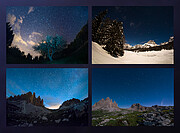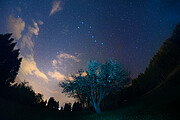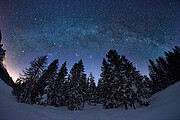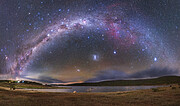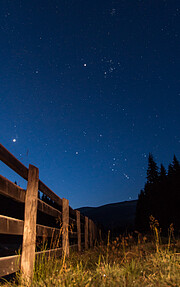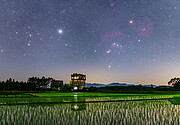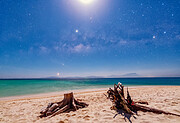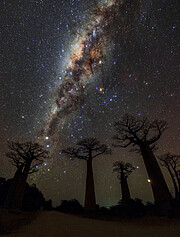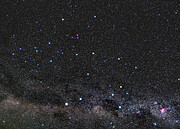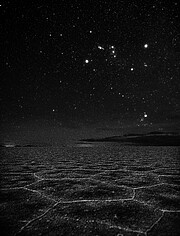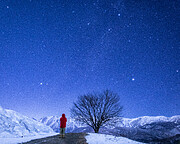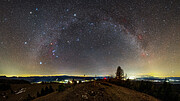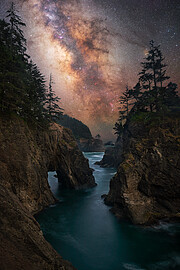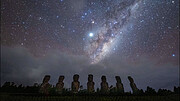- News
- Science
- Scientific Bodies
- Divisions
- Commissions
- Commission A1 Structure
- Commission A2 Structure
- Commission A3 Structure
- Commission A4 Structure
- Commission B1 Structure
- Commission B2 Structure
- Commission B3 Structure
- Commission B4 Structure
- Commission B5 Structure
- Commission B6 Structure
- Commission B7 Structure
- Commission C1 Structure
- Commission C2 Structure
- Commission C3 Structure
- Commission C4 Structure
- Commission C5 Structure
- Commission D1 Structure
- Commission E1 Structure
- Commission E2 Structure
- Commission E3 Structure
- Commission E4 Structure
- Commission F1 Structure
- Commission F2 Structure
- Commission F3 Structure
- Commission F4 Structure
- Commission G1 Structure
- Commission G2 Structure
- Commission G3 Structure
- Commission G4 Structure
- Commission G5 Structure
- Commission H1 Structure
- Commission H2 Structure
- Commission H3 Structure
- Commission H4 Structure
- Commission J1 Structure
- Commission J2 Structure
- Commission J3 Structure
- Commission X1 Structure
- Commission X2 Structure
- Past Commission Organising Committees
- Working Groups
- Centres
- Scientific Meetings
- Rules & Guidelines
- General Assemblies
- Meeting Proposals
- Future IAU Meetings
- General Assemblies
- EC Meetings
- Officers' Meetings
- Regional Meetings
- Symposia
- Focus Meetings
- Institutional Meetings
- IAU Offices Meetings
- IAU-Sponsored Meetings
- Letters of Intent submitted for 2024
- Letters of Intent submitted for 2023
- Letters of Intent submitted for 2022
- Letters of Intent submitted for 2021
- Letters of Intent submitted for 2020
- Past IAU Meetings
- Templates
- Other Meetings
- Grants & Prizes
- Scientific Bodies
- Publications
- IAU Publications
- IAU Strategic Plan
- Symposia
- WGSBN Bulletins
- Regional Meetings
- Information Bulletins/Catalyst
- E-Newsletters
- Focus Meetings
- Transactions A
- Transactions B
- Related Publications
- GA Newspapers
- CAPjournal
- IAU Books
- Brochures
- IAU Offices
- WG Reports
- Commission Reports
- Division Reports
- Past IAU Publications
- Rules, Guidelines and Instructions for Proceedings
- Publishers
- IAU Publications
- Administration
- About the IAU
- Statutes & Rules
- IAU Policies
- IAU Executive Bodies
- IAU Secretariat
- Resolutions
- Members Administration
- Administrative Dates & Deadlines
- International Organisations Relations
- Donate to the IAU
- Training in Astronomy
- Astronomy for Education
- Astronomy for Development
- Astronomy for the Public
- Office for Astronomy Outreach
- FAQ
- Themes
- Satellite Constellations
- Astronomy in Everyday Life
- How to Report a Discovery
- Careers in Astronomy
- Defining our Place in the Cosmos
- The Constellations
- Light Pollution
- Measuring the Universe
- Near Earth Objects
- How to Participate in Astronomy Research
- Naming of Astronomical Objects
- Naming of Exoplanets
- Buying Star Names
- Naming Stars
- Pluto and the Solar System
- IAU Member Statistics
- Our Moon: the Moon
- Meteors & Meteorites: The IAU Definitions of Meteor Terms
- UNESCO-IAU Portal to the Heritage of Astronomy
- Social Media
- Past Events
- Call for Online Resources
- Astronomy@Home Awards
- Contact
ann22042 — Announcement

15 December 2022
Winners of the IAU OAE’s 2022 Astrophotography Contest Announced
The IAU Office of Astronomy for Education (OAE) is today announcing the winners of its 2022 Astrophotography Contest. After being launched in April, the contest received nearly 230 entries from 31 countries around the world. The winning photos and videos, listed below, will expand the OAE’s collection of high-quality educational resources available to astronomy educators globally.
The contest was first held last year, aiming to gather material of educational value on astronomical topics for which high-quality images and videos are not easily accessible to educators. Following on from last year’s success, the OAE held the contest again this year, with the OAE Center Italy as co-sponsor.
Participants were invited to submit still images and time-lapse videos of celestial patterns in the night sky that have cultural significance associated with them. These patterns are of many types and can include asterisms, constellations, dark constellations, dark spots, bright diffuse patterns, and single stars. Participants were free to consider both the constellations officially recognised by the IAU and also non-IAU-constellations.
Susanne Hoffmann, member of the jury, says: “Constellations are historical patterns for making calendars in order to predict local weather and seasonal climate. That’s why every culture has or had its own constellations and the figures relate to the local flora, fauna and landscape of the human ethnical group.”
Livia Giacomini, also a member of the jury and astroEDU editor in chief, says: “Photos of the sky are a very powerful tool to engage young generations in science. This Is the main reason why OAE Center Italy decided to cosponsor the contest and enlarge the collection of astronomical images that in the future can be freely published in school texts, posters and other materials. With astroEdu, the online educational platform by IAU, we are planning to use all these beautiful images of constellations and stars to bring astronomy in the classrooms of the all world.”
Giorgia Hofer, winner in the Still images of celestial patterns category, says: “Astronomy is my greatest passion and it has given me the opportunity to appreciate and love the world and the Dolomites. I am happy that my photos will be a tool for studying the sky.”
Entries were evaluated by an international panel of astrophotographers and astronomy educators, who considered not only the aesthetic and technical aspects, but also the educational value of each entry in the context of primary and secondary school teaching. The three winning entries in the category of time-lapse videos of celestial patterns received cash prizes of €750, €500 and €250 for first, second and third place respectively. In the category of Still images of celestial patterns, 21 winning entries received a prize of €250 each. Participants were encouraged to allow us to publish their images and videos even if they don’t receive a prize, as long as the images and videos are considered by the jury to be of high educational value, resulting in 14 honourable-mention images and three honourable-mention videos.
The winning photos and videos and the honourable mentions are now available under the Creative Commons Attribution (CC BY) 4.0 International License which implies that the authors retain the copyright to their images. This allows their free use as long as proper credits are given (see each image for the credit in the form author/IAU OAE). These images serve as an open educational resource to benefit teachers and learners worldwide, and can be accessed here.
The winning entries in each category are:
Still images of celestial patterns:
- The Kingdom of Orion, by Carlos Zudaire, Spain
- Winter Constellations, by Mohamed Aboushelib, Egypt
- Big Dipper in Four Seasons, by Giorgia Hofer, Italy
- The Pillar of Creation, by Giorgia Hofer, Italy
- Lyrid of the Lake, by Jianfeng Dai, China
- Winter Milky Way, by Giorgia Hofer, Italy
- The Moon and Milky Way Arch Above the Golden Hall, by Likai Lin, China
- The Milky Way Over Anglers Reach, by Lucy Yunxi Hu, China
- Romanian Orion, by Alex Conu, Romania
- Watchtower and Paddy Fields Under the Starry Sky, by Likai Lin, China
- Dreamlike Starry Sky and Airglow, by Likai Lin, China
- To Guard the Stars and the Sea Together, by Likai Lin, China
- Milky Way Arch over La Palma, by Amirreza Kamkar, Germany
- Milky Way over Avenue of Baobabs, by Amirreza Kamkar, Germany
- Zodiacal Light over GTC Observatory, by Amirreza Kamkar, Germany
- Cen-Lup-Cru-Panorama: Centaurus Carrying the Beast and Riding Along the Milky Way, by Uwe Reichert, Germany
- Luminous Salar de Uyuni, by Stephanie Ye Ziyi, China
- Forgoing the Summer Triangle as it Sets in the Early Winter Evening, by Kouij Ohnishi, Japan
- The Milky Way Across the Zenith, by Kouij Ohnishi, Japan
- Milky Way Arch over Amboseli National Park, by Amirreza Kamkar, Germany
- Warm Winter Night Over Spiš Region, by Robert Barsa, Slovakia
Honourable-mention images:
- Portrait of Bat, by Thanakrit Santikunaporn, Thailand
- Galaxy Arm, by Ruqayah Mohammed, Iraq
- Drive, by Marcin Zajac, Poland
- Oregon Coast, by Marcin Zajac, Poland
- Teide Observatory, by Curd-Christian Tengeler, Germany
- Equatorial Milky Way, by Giorgia Hofer, Italy
- The Pleiades M45 with Majestic Dust, by Mohamed Usama, Egypt
- Most Brightest Stars of the Sky, by Giorgia Hofer, Italy
- Sky Over the Town of Nindirí, in Masaya, Nicaragua, by René Antonio Urroz Álvarez, Nicaragua
- The Hunter in the Forest, by by René Antonio Urroz Álvarez, Nicaragua
- Moon-Mercury-Pleiades Conjunction, Giulio Colombo, Italy
- Orion Rises Over Mount Etna, Dario Giannobile, Italy
- Big Dipper, by Arya Anthony, India
- Between Two Skies, by Fabrizio Melandri, Italy
Time-lapse videos of celestial patterns:
- First place: Southern Sky, by Jianfeng Dai, China
- Second place: Winter Constellations, by Amirreza Kamkar, Germany
- Third place: Constellation from the World, by Stephanie Ye Ziyi, China
Honourable-mention videos:
- The Culmination of Canopus, by Fabrizio Melandri, Italy
- Chilean Nights, by Robert Barsa, Slovakia
- Flowing Night Sky, by Robert Barsa, Slovakia
More information
The IAU is the international astronomical organisation that brings together more than 12 000 active professional astronomers from more than 100 countries worldwide. Its mission is to promote and safeguard astronomy in all its aspects, including research, communication, education and development, through international cooperation. The IAU also serves as the internationally recognised authority for assigning designations to celestial bodies and the surface features on them. Founded in 1919, the IAU is the world's largest professional body for astronomers.
The IAU Office of Astronomy for Education is hosted at Haus der Astronomie (HdA), managed by the Max Planck Institute for Astronomy. The OAE’s mission is to support and coordinate astronomy education by astronomy researchers and educators, aimed at primary or secondary schools worldwide. HdA’s hosting the OAE was made possible through the support of the German foundations Klaus Tschira Stiftung and Carl-Zeiss-Stiftung.
The OAE is supported by a growing network of OAE Centers and OAE Nodes, collaborating to lead global projects developed within the network. The OAE Centers and Nodes are: the OAE Center China–Nanjing, hosted by the Beijing Planetarium (BJP); the OAE Center Cyprus, hosted by Cyprus Space Exploration Organization (CSEO); the OAE Center Egypt, hosted by the National Research Institute of Astronomy and Geophysics (NRIAG); the OAE Center India, hosted by the Inter-University Centre for Astronomy and Astrophysics (IUCAA); the OAE Center Italy, hosted by the National Institute for Astrophysics (INAF); the OAE Node Republic of Korea, hosted by the Korean Astronomical Society (KAS); OAE Node France at CY Cergy Paris University hosted by CY Cergy Paris University; and the OAE Node Nepal, hosted by the Nepal Astronomical Society (NASO).
Links
Contacts
Eduardo Penteado
Coordinator, OAE
Email: penteado@astro4edu.org
Lars Lindberg Christensen
IAU Director of Communications
Cell: +1 520 461 0433/+49 173 38 72 621
Email: lars.christensen@noirlab.edu


